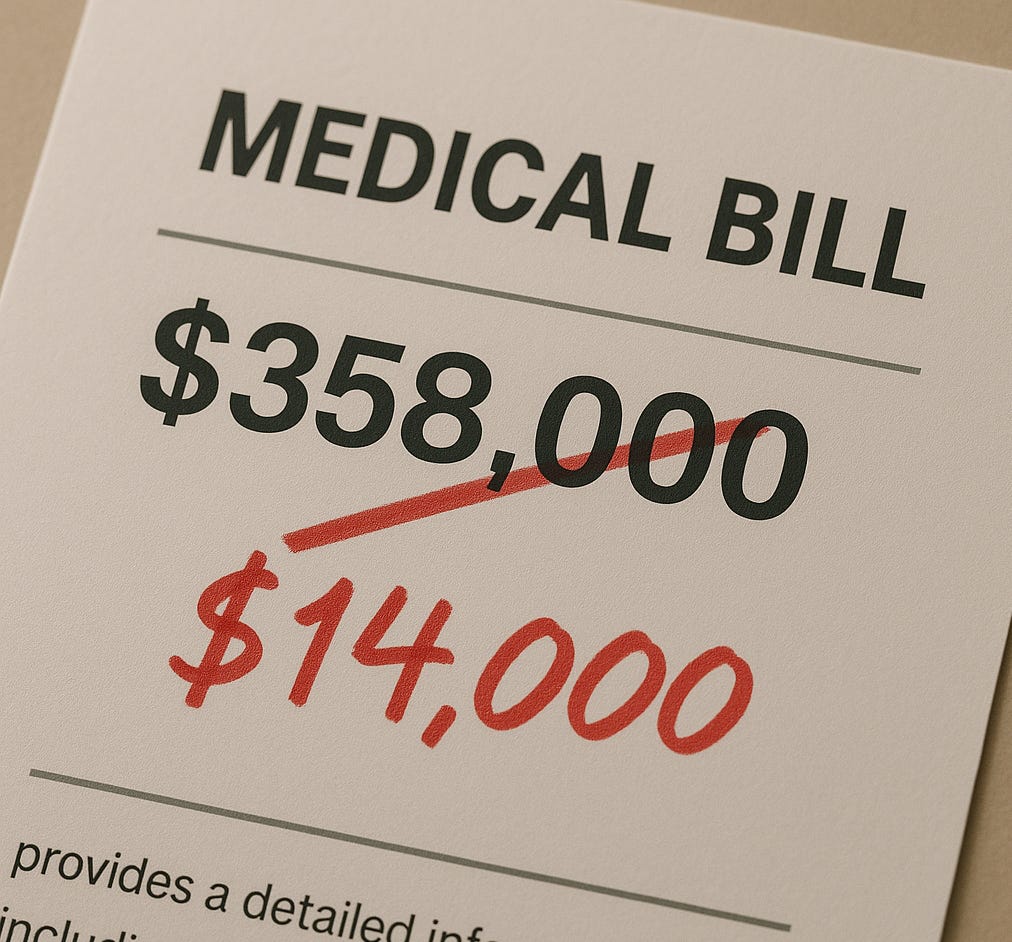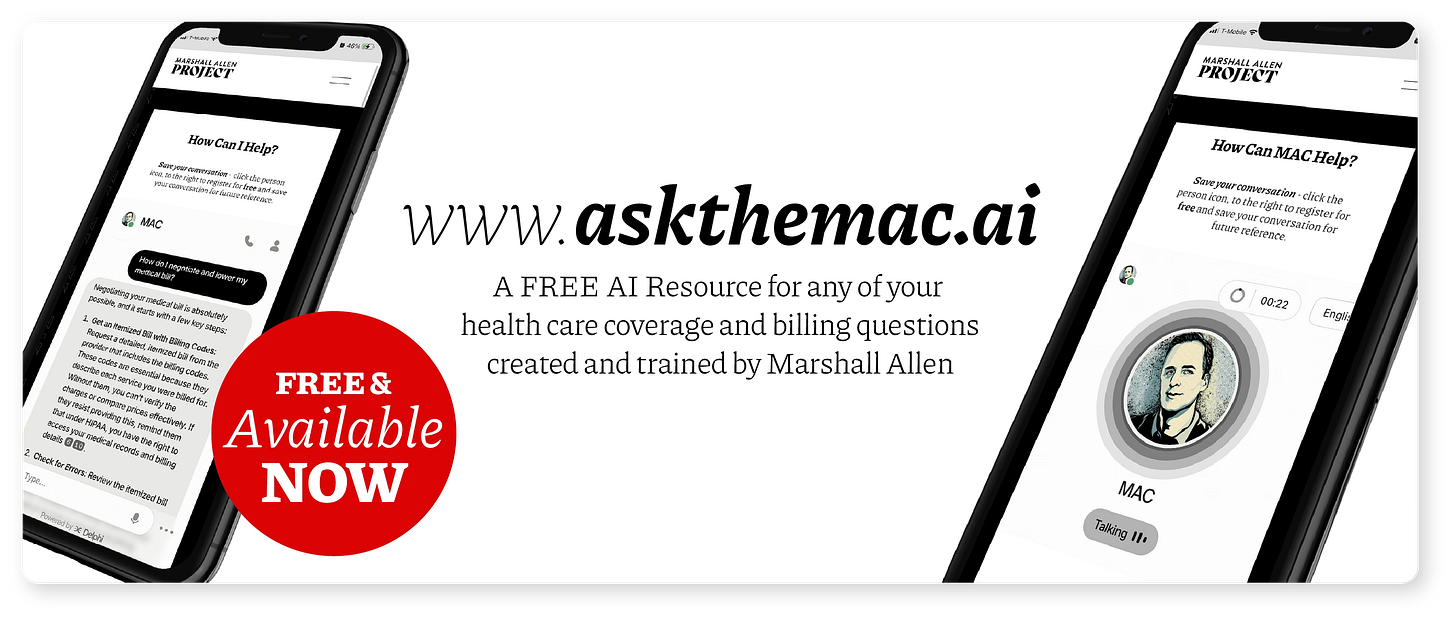Crisis to Courage: Advocacy Slashes $358K in Medical Debt
After a lifesaving surgery and two-week hospital stay, Rob Westly enlisted the help of a patient advocate and ended up eliminating over $358,000 in medical charges.
In April 2023, Rob began experiencing severe intestinal distress. He had a blockage and was in significant pain, prompting him to call his sister Terri and tell her, “I’m not okay.” Realizing how rarely her sibling spoke these words, Terri immediately went to his house and drove him to Parkview Hospital in LaGrange, Indiana.
Terri Ellis lives in Northeastern Indiana, and her brother, Rob Westly, went through a series of harrowing medical challenges. At the family's request, I have altered her brother's name to maintain privacy.
“His lower intestines had exploded on the inside.” Rob previously had diverticulitis, which is an inflammation or infection of small pouches in the digestive tract. His condition progressed into a serious blockage and rupture in his lower intestines, which caused extreme pain and required emergency medical attention.
Rob was on the brink of dying based on this blockage, and the local hospital recognized that he needed immediate, advanced surgical intervention, which they could not provide. Ambulance transport was arranged, and he was taken to Parkview Regional Medical Center in Fort Wayne, where he was taken directly into surgery for an emergency ileostomy.
“They had to remove a large percentage of his intestine, which left him with an ileostomy bag.” With so little of his intestinal tract left intact after the operation, Terri was concerned about her brother’s body being able to perform baseline digestive functions.
In the months following Rob’s two-week hospital stay, Terri served as his primary caregiver and support system. She helped him manage his ileostomy bag each day and also took him to follow-up appointments. Terri and Rob were the only two siblings in their family, a bond that was even more profound since losing their parents a year earlier.
Rob was unemployed, so the entire surgery and subsequent two-week hospital stay were billed to him as an uninsured patient. The largest bill came in at $355,171.08!
Overwhelmed by the amount, Terri turned to a close friend she made through her local church community, Karen Kirkpatrick. Karen was known for her expertise in navigating complex hospital billing and financial negotiations. She knew the late Marshall Allen; his work has been an inspiration and resource for her advocacy work. She learned from his book, Never Pay the First Bill, how important it is for patients to ask basic questions, including a request for an itemized bill. Inspired by Marshall, Karen launched My Advocate, a non-profit organization, in 2025.
The first step Karen took was gathering all original and final bills. She then requested detailed, itemized bills from Parkview and all providers (lab, radiology, surgeon, etc). She compared these bills to Rob’s medical records, noting every lab draw, procedure, and charge. “I wanted lab times and what labs were drawn so that I could compare them to the lab bill that I got because I knew there were duplicates on there.”
The 44-mile ambulance trip was billed at $1,804 - a whopping $41 per mile!
Karen found duplicate CPT codes, charges for procedures not performed, and other billing errors. She documented these discrepancies and contacted the hospital’s billing department to present her findings. She insisted on corrections and removal of invalid charges, refusing payment until the bills were accurate.
Early in the process, Rob’s bill received a standard 30 percent uninsured discount reducing the total from $355k to $287k. After learning about the hospital’s “presumptive charity” policy which could write off bills for qualifying patients, Karen pursued this possibility. It didn’t come easily.
The bulk of Karen’s advocacy work occurred in the second half of 2023. By this time, Rob’s $287k in bills had been passed to a collection agency after the bill wasn’t paid promptly. Karen sent formal letters, made repeated phone calls, and provided supporting documentation to both the hospital and creditors informing them that this qualified as a presumptive charity case. After providing documentation referencing the hospital’s own policies and standard industry practice, the hospital applied the presumptive charity discount to all services rendered.
After sitting in collections for 6 months, the entire remaining balance of $287k was wiped away!
Once the hospital wrote off its portion, Karen turned to third-party radiology, lab, and surgeon groups, asking them to honor the same discounts. Karen requested that the providers accept the hospital’s charity decision or negotiate further discounts based on fair market value. In the case of radiology, she researched local fair market prices and negotiated a 30% discount after they refused to match the hospital’s charity write-off. Below is a table of what was originally billed and paid to third parties after Karen worked her magic.
Rob paid $14,111 to resolve the outstanding bills with third-party services related to his surgery and multi-week hospital stay. Recounting the success story, Karen emphasized the importance of not giving up and continuing to challenge every charge.
Taking over $372,000 in bills down to $14,111 is a great example of what can happen with the right mix of persistence, documentation, and negotiation.
But wait, the story gets even more shocking - Rob was encouraged to head back into surgery at Parkview just 8 months later, in December of 2023. The goal: start to reverse the ileostomy which wasn’t intended to last forever.
The result? Another near-death experience - a major medical error occurred, almost taking Rob’s life on the table. The only progress made during the operation was recovering from a medical mistake.
Rob received a $127,000 bill in the months following the scary surgery; he hasn’t paid a penny. Just like the first, Rob’s second surgery hit all the requirements for presumptive charity, but this time there was one problem: Parkview eliminated their presumptive charity policy after 2023 and claimed it would only apply from the date Karen notified them (mid-2024), not retroactively to the date of service in 2023.
Leaning on her knowledge of how insurance and hospital billing works, Karen is currently insisting that the charity coverage must be applied according to the date of service, not the date of notification or application. Stay tuned for the outcome and full story in a future release.
Final Thoughts and Key Takeaways:
This story highlights how the financial side of health care can create significant challenges for patients. But it also shows that with the right approach, those challenges can be overcome. Here’s what we can all take away from Rob, Terri and Karen’s experience:
Request an itemized bill with billing codes. This is the foundation for identifying errors or overcharges. Make sure the codes match the services provided, and use them to check fair prices on resources like Fair Health Consumer, Billy, and Health Care Bluebook.
Understand financial assistance policies. Many hospitals offer charity care, but you often have to ask for it. Research their policies and advocate for retroactive application if necessary. Know your rights, especially when working with non-profit hospitals. Section 501(r) of the Internal Revenue Code lists requirements that tax-exempt hospitals must comply with.
Challenge inaccuracies. Karen’s success came from carefully reviewing bills, spotting duplicate charges, and documenting errors. She didn’t accept the first answer and pushed for corrections.
Negotiate with third-party providers. Even after the hospital reduced its charges, Karen worked with radiology, lab, and surgeon groups to secure additional discounts. She used fair market data to support her negotiations.
Persistence matters. Hospitals and billing departments may resist, but persistence can lead to significant savings. Karen’s efforts reduced Rob’s bills from more than $372,000 to just over $14,000—a remarkable outcome.
This story is a testament to the power of advocacy and determination. By following these steps, anyone can take control of their medical bills and achieve fair outcomes.













I would love to get in touch with Karen. I am a recently retired physician who had my own medical bill nightmare this year and would like to connect with other advocates in this field as my next volunteer gig. Can you connect me?
It won’t be a victory until we have Medicare For All.